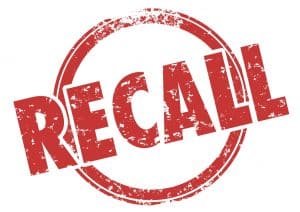Medical Device Recalls Jump More than 31% During Second Quarter of 2020
 Beyond issues surrounding the coronavirus pandemic, medical device recalls have had their fair share of headlines this year. In the second quarter of 2020, the number of medical device recalls increased by over 30 percent. Here’s what you should know.
Beyond issues surrounding the coronavirus pandemic, medical device recalls have had their fair share of headlines this year. In the second quarter of 2020, the number of medical device recalls increased by over 30 percent. Here’s what you should know.
Stericycle Expert Solutions issues annual quarterly reports detailing recalls encompassing the consumer products, pharmaceutical, food and beverage, automotive and medical industries. This year’s report showed medical device recalls hit their highest number since 2018.
Key Q2 medical device recall stats
Some of the numbers to know about medical device recalls in the second quarter of 2020 are as follows:
- By the end of this year, it is estimated that 1,200 medical device recalls will be issued – this places the medical device industry on a path to have 35% more recalls than 2019.
- In the second quarter, there were 341 medical device recalls, exceeding 300 for the first time in the last two years. These recalls did not include state-level recalls of personal protective equipment (PPE) such as face masks or similar products.
- Second-quarter recalls amounted to 29 million units, a reduction of 91.7% from the number of units recalled in the first quarter.
- In the second quarter, safety issues only accounted for 14.1% of all events, or 48 recalls. Manufacturing defects and mislabeling trailed safety issues, and software issues trailed behind them as the number four cause of recalls.
- Of all affected medical recalls, 62.9% of them were related to sterilization issues, mainly resulting from an anomalous single syringe recall of over 16 million units.
- The average medical device recall size in the second quarter of 2020 was 86,000 units. This is the lowest number of units affected since the second quarter of 2019.
Recalled medical products of note during Q2
Some of the more high-profile recalls in the report include:
- LeMaitre Vascular, Inc. is recalling the Over the Wire Embolectomy Catheter. The issue involves a risk that the balloon catheter will fail to deflate while in use. Any failure of the balloon to deflate could result in the tip of the balloon or catheter separating and obstructing the patient’s blood vessel as the surgeon tries to remove the catheter. This issue could lead to serious health consequences, required surgical action to remove the balloon pieces were tip, thrombosis, damage to the blood vessel, or death. More than 49,000 devices have been recalled in the United States.
- Applied Medical is recalling their Python Embolectomy Catheters, Bard Embolectomy Catheters, and OTW Latis Cleaning Catheters. The issue involves a risk of the tip of the catheter detaching while in use. If this occurs, catheter pieces could splinter off into the patient’s body, resulting in potential damage to blood vessels, required surgical procedures to remove the tip, or even death. The company has recalled 19,400 of these catheters.
- Boston Scientific Corporation is recalling IMAGER II 5F Angiographic Catheters. The issue involves the possibility of the catheter tip detaching during the preparation for a procedure or an actual patient procedure. Potential consequences include the need for surgery to remove the tip of the catheter in the patient’s blood vessel. Other serious consequences involve potential embolism (obstruction of blood flow), stroke, or death. The company has recalled 6,130 of these devices.
Potential cyberthreats to medical device safety
According to Chris Harvey, Vice President of Crises Solutions at Stericycle Expert Solutions, there is no quantifiable impact from the coronavirus pandemic on medical device recall activity. However, cyberattacks against healthcare organizations have increased in frequency during the same time healthcare systems in hospitals are attempting to respond to the COVID-19 pandemic.
It is possible that attackers are attempting to take advantage of perceived weaknesses in hospitals at this time, or it simply may be a coincidence. According to Harvey, there could be a connection between medical device vulnerabilities and patient health.
Please contact Paulson & Nace, PLLC through this contact form or by calling 202.463.1999.

For more than 40 years, Barry J. Nace has worked to protect the rights of victims of medical malpractice and other personal injuries. Throughout his career, he has proven that multimillion-dollar awards are not a matter of luck, but the result of experience, hard work, outstanding trial skills, and an unquestioned dedication to justice. To date, Mr. Nace has produced dozens of verdicts and settlements in excess of $1 million with three in excess of $30 million. Read more about Barry J. Nace.
